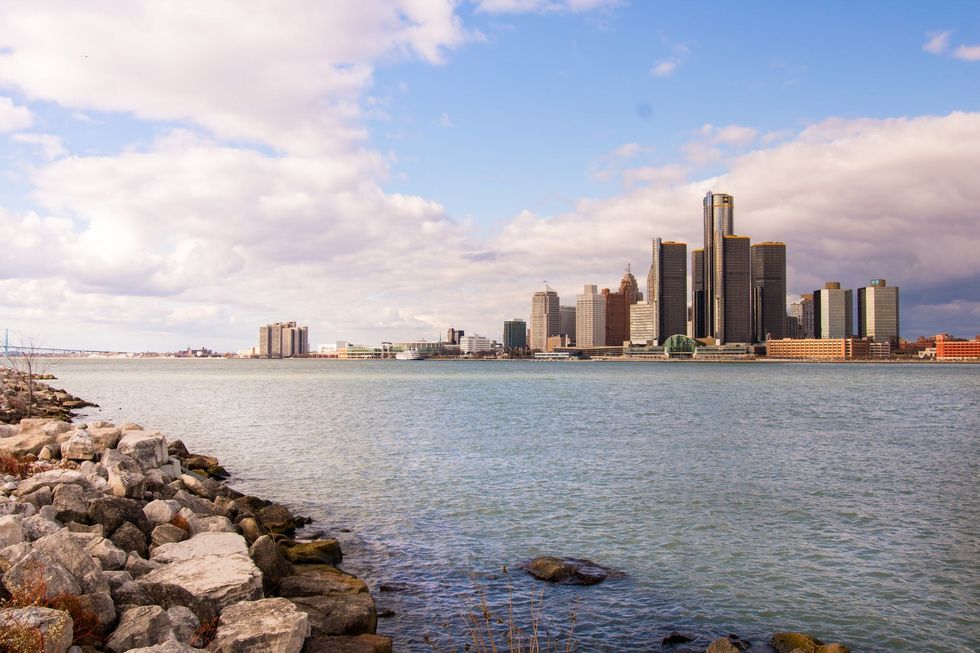Image consultant Denitra Gregory, owner of Detroit's Unforgettable You LLC, appears pensive but replies firmly, "I have mixed feelings about it."
Gentrification in Detroit has become more apparent and has affected how black, female business owners consider the changes.
According to an article in The Detroit News, "…Demand may be growing, but it's growing slowly. With almost all the influx being young single people and childless couples, most of that demand will go into Midtown and downtown."
Gregory says that one positive outcome gentrification has brought is the opportunity for more black, female entrepreneurs to learn.
"We need to have a voice, and we need to have a space, and you can't have any of that just sitting back…waiting."
Gregory's imaging consulting business offers different empowerment services to women and has seen a slight effect in lieu of the city's changes.
"I am at a disadvantage because some resources that we have here, I gotta jump through hoops to find out what those are."
Even still, she believes that "broadening your network" is one key to thriving amid the shift in Detroit, especially among black female entrepreneurs.
"There's a lot of fear and distrust, and that's hard to overcome, but you have to in order to grow… sometimes you're gonna have to take a coffee with somebody who does not look like you… who does not understand your culture… to just vibe."
The new businesses within downtown Detroit, in particular, also offer a broader scope of opportunity with owner and trinket designer of Trinkets and Such Daisha Nychelle. She says gentrification has aided in increased exposure for her trinket and gift shop.
"For the last two years, I've been a part of the Bedrock Holiday Markets. So, downtown… I've been able to put myself in the market without assuming all of the risks."
The Detroit News also reports that, "…despite the improvement in public services and the long-overdue reduction in property tax burdens that have taken place in recent years, as many as one-third of all of Detroit's neighborhoods are on the knife edge of decline."
However, Nychelle thinks of the possibilities and what that could mean for black, female business owners like herself.
"You have to target people with disposable income…That's the only way that change is going to come…I can't sustain as a business owner only catering to people on a…budget. That's just not reality."
She states that although newer establishments have "priced out" the majority of visitors, there have been positive results within her business, which sells jewelry, accessories, and even some home decor pieces.
"Making it [Detroit] a destination place instead of a ghost town has absolutely helped me and a few other people I know personally. I don't think I would've been able to do that on my own."
Administrator and owner of ALTUM Care Homes Ronda Freeman McDonald is excited about the changes seen within Detroit and finds it "necessary."
She began her business in an apartment building in Detroit, to which she still owns today. The program provides various adult home care services within Metro Detroit, and has allowed her to see first-hand how gentrification has impacted the city.
"I'm excited about what's happening in Detroit. I've been to some of the town hall meetings, and… where my apartment building is, it's one of the areas where they're targeting true redevelopment."
Freeman McDonald says that although she is embracing the change, her business would look a bit different if it were in Wayne county, where Detroit is, rather than Oakland county.
"I wouldn't be able to command the rates…because of the stigma that Detroit carries…I've witnessed, those of my colleagues who do have parts of their care business in the city…so people are not looking for that… we're a business, we have to thrive."
She does, however, think this could change over time, and hasn't given up on the idea of branching her business back into the city.
"We've looked at that possibility, so it's still on the table…but at this time, it's just not possible."
An article on the History Channel's website implies that, "Detroit's future will depend not only on massive investments from companies…but on the spirit of residents in this resilient city."
Freeman McDonald agrees, and adds, "The change that's coming…bringing these areas back…is a welcomed change, and I think the attitude of the city is changing."
Black, female entrepreneurs like Gregory, Nychelle, and Freeman McDonald seem to embrace what they agree is Detroit's revitalization.














